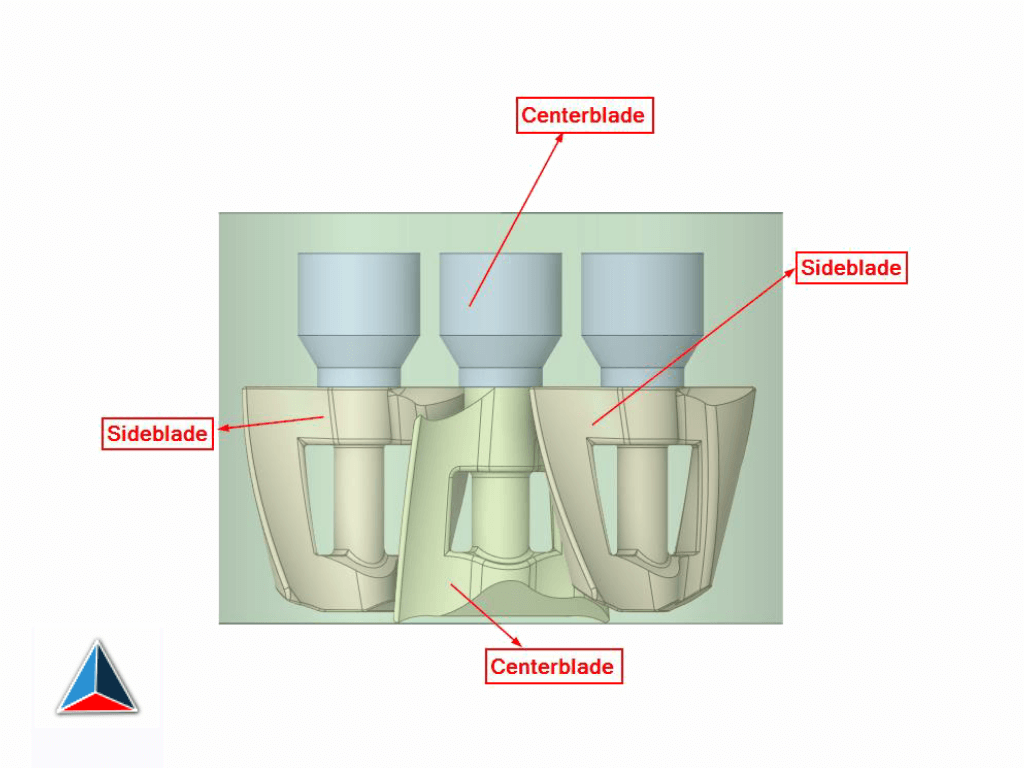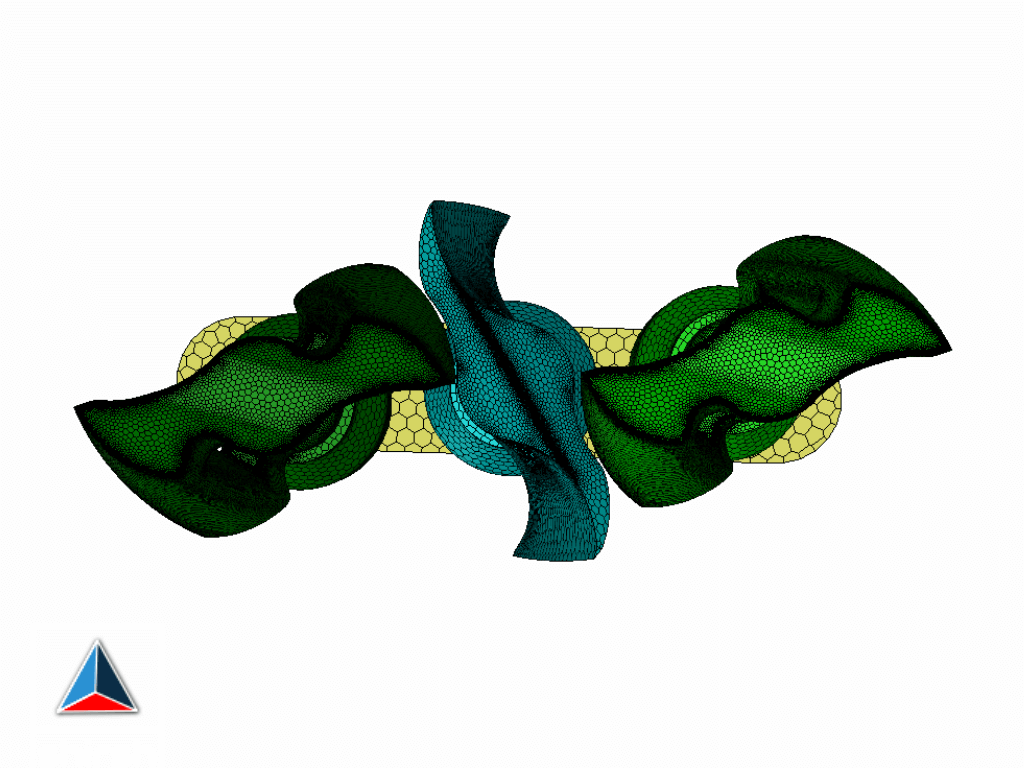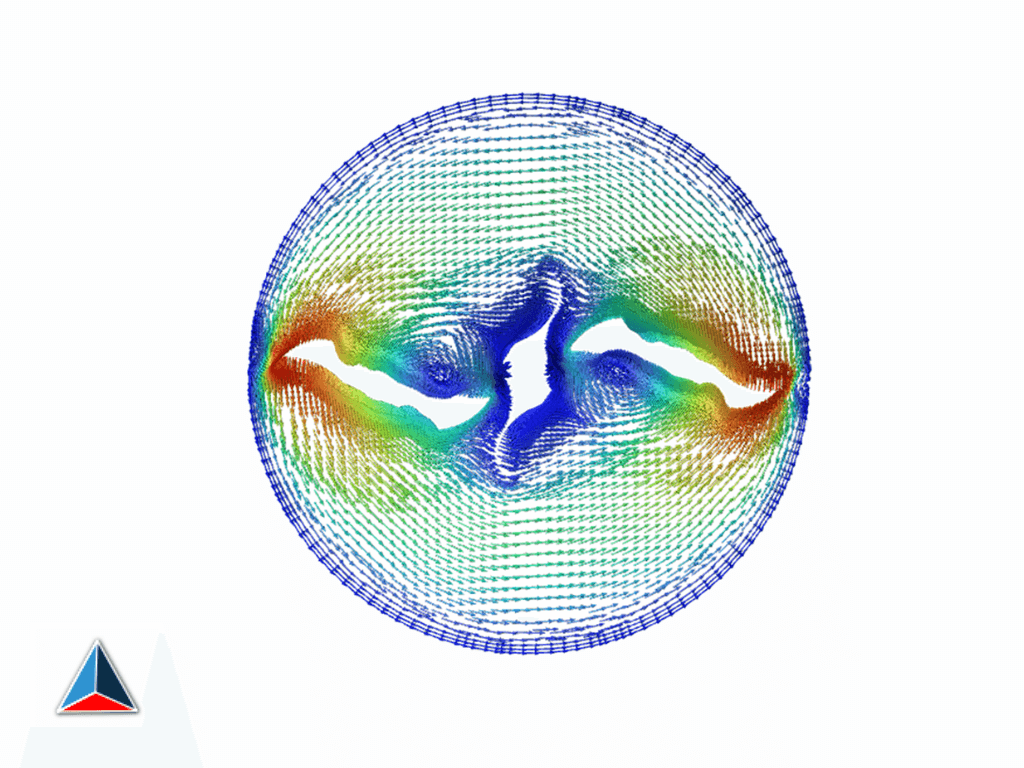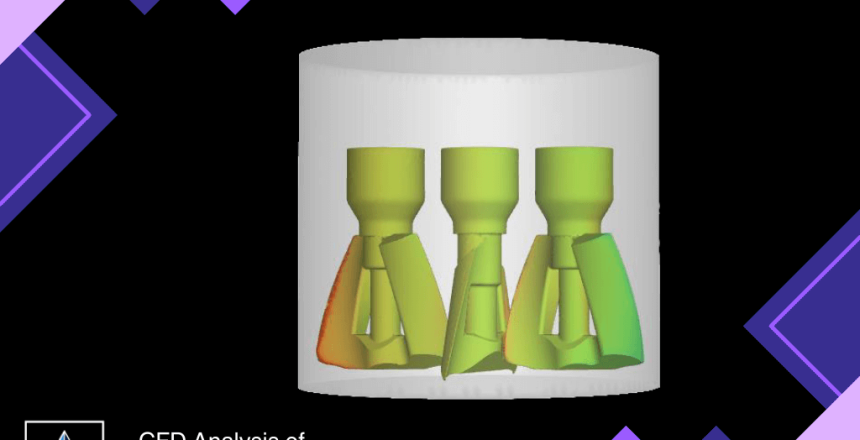Project Brief
CFD & FEA analysis of Planetary Mixer to study the mixing of fluids and solids and to check structural response due to pressure generated on the blades of mixer due to mixing process and the effect of pressure in terms of deformation and exerted stresses on blades and shafts.

Challenges and Objectives
Challenges
1. Complex Fluid-Solid Interactions: Accurately simulating the dynamic interactions between the fluids and solids during the mixing process posed significant technical complexities.
2. Structural Integrity Under High-Stress Conditions: The mixer blades and shaft were subject to high stresses due to pressure variations during the mixing, necessitating a detailed analysis to ensure their structural integrity.
3. Optimization of Flow Patterns: Achieving uniform mixing while preventing low movement zones and reducing stress concentrations on the mixer blades and shaft was crucial.
Objectives
1. Detailed CFD Analysis: We aimed to thoroughly understand the flow dynamics and pressure distributions within the mixer under various operational conditions.
2. FEA for Structural Response: Our goal was to assess the deformation and stresses on the mixer’s components under operational loads to ensure durability and safety.
3. Design Optimization: We sought to enhance the mixer’s performance and lifespan by optimizing the design based on our analytical findings.

Methodology (Solutions Implemented)
CFD Analysis:
Setup and Execution: We conducted a multi-phase flow simulation to model the interaction between fluids and solids. Advanced turbulence models were utilized to capture intricate flow dynamics, considering the impeller’s motion and its effect on the mixing efficiency and pressure distribution.
FEA Analysis:
Setup and Execution: A detailed finite element model of the mixer’s blades and shaft was developed, incorporating their material properties. Stress analysis under simulated operational conditions highlighted stress concentrations and potential failure points, guiding our design optimization efforts.
Design Optimization:
The insights gained from CFD and FEA analyses were applied to iterate the design, significantly reducing stress concentrations and enhancing fluid flow patterns, thereby improving the structural robustness of mixer components.
Benefits (Results Achieved)
1. Enhanced Mixer Performance: The optimized impeller design led to improved mixing efficiency and reduced dead zones, as evidenced by our advanced flow analysis.
2. Increased Equipment Lifespan: Our structural analysis identified and mitigated potential failure points, substantially increasing the mixer’s operational lifespan and reducing maintenance requirements.
3. Safety and Compliance: The project ensured adherence to industry standards for pressure vessels and mechanical integrity, enhancing operational safety and reliability.

Summary of Project
This case study encapsulates our successful analysis and optimization of a Planetary Mixer using CFD and FEA methodologies. We addressed the complex interactions of mixing fluids and solids, as well as the structural responses of mixer components under high-stress conditions. The results led to significant improvements in mixer performance, safety, and durability, delivering a robust, efficient, and reliable mixing solution to our client. The project not only met but also exceeded industry standards, setting a new benchmark in mixer design and analysis.


